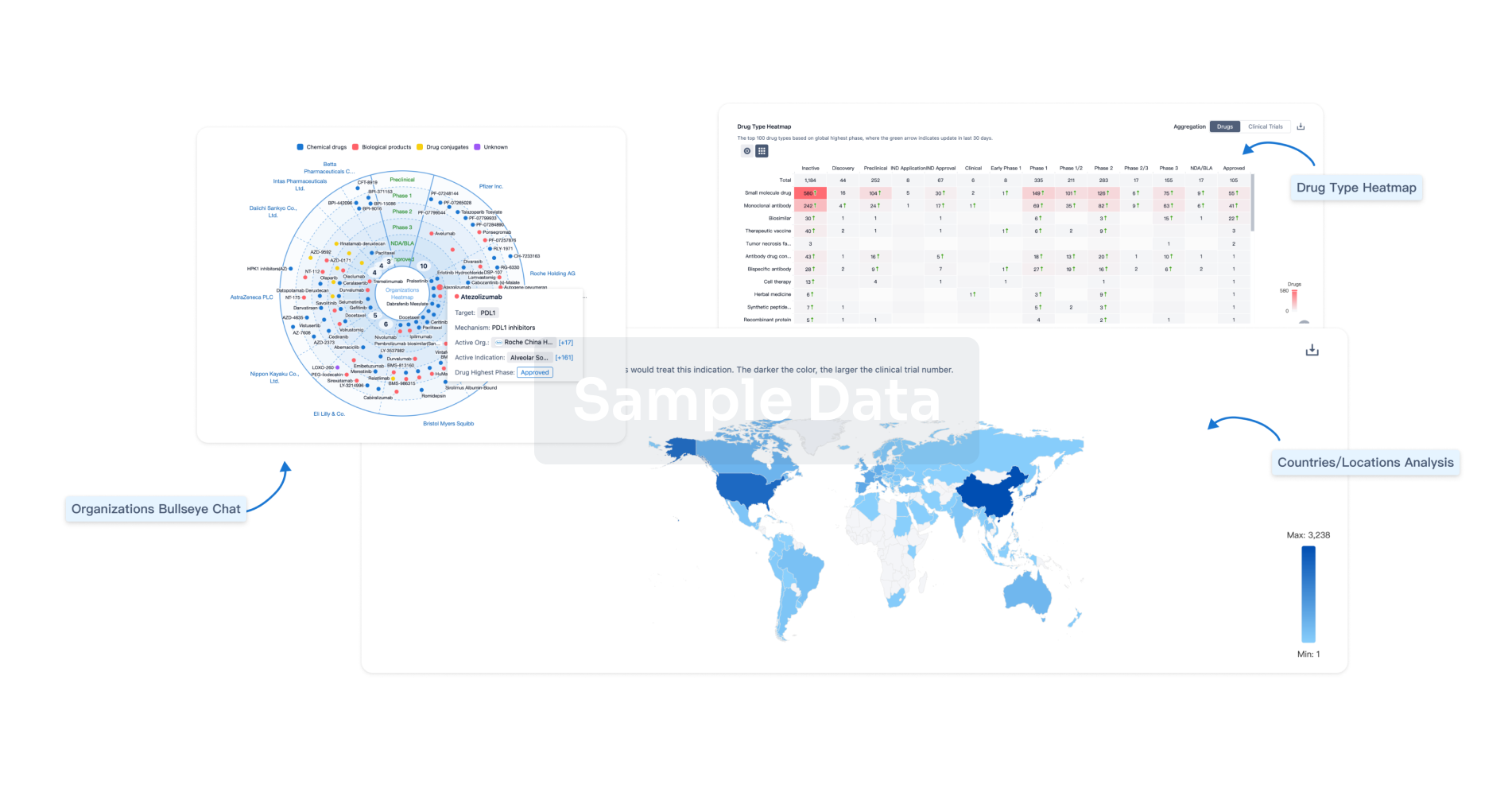Request Demo
Last update 08 May 2025
Myotoxicity
Last update 08 May 2025
Basic Info
Synonyms Drug Associated Myopathies, Drug Associated Myopathy, Drug Induced Myopathies + [38] |
Introduction Damage to the muscle or its function secondary to toxic substances such as drugs used in CHEMOTHERAPY; IMMUNOTHERAPY; or RADIATION. |
Related
15
Clinical Trials associated with MyotoxicityNCT06508177
Does Postoperative Analgesic Modalities Effect Blood Creatin Phosphokinase Levels After Laparoscopic Cholecystectomy Surgery?
Regional anesthesia and analgesia technics are widely and securely used during general surgery procedures. Interfascial plane blocks are the latest used ones for analgesia. There are studies in literature indicating that bupivacaine cause myotoxicity. The investigators aimed to examine plasma creatine phosphokinase (CPK) levels to see whether myotoxicity occurs or not after fascial plane blocks are applied to patients undergoing laparoscopic cholecystectomy.
Start Date05 Aug 2024 |
Sponsor / Collaborator- |
NCT06707532
The Use of Muscle Relaxants During Electroporation Ablation (PFA) as a Potential Protective Factor Against Damage to Transverse Striated Muscle Tissue and the Heart
The study aims to improve the safety of the electroporation ablation (PFA) procedure by using muscle relaxants to reduce skeletal muscle damage during the procedure. It will also assess myocardial damage to improve the procedure's quality and speed up recovery after the procedure.
Start Date01 Aug 2024 |
Sponsor / Collaborator- |
NCT05505890
Effects of Postoperative Analgesic Modalities on Plasma Creatine Phosphokinase(CPK) Levels After Knee Artroplasty
Regional anesthesia and analgesia technics are widely and securely used during orthopedic surgery. Interfascial plane blocks are the latest used ones for analgesia. There are studies in literature indicating that bupivacaine cause myotoxicity. We aimed to examine plasma CPK(creatine phosphokinase) levels to see whether myotoxicity occurs or not after suprainguinal fascial plane block is applied to patients undergoing knee artroplasty surgery.
Start Date16 Dec 2022 |
Sponsor / Collaborator- |
100 Clinical Results associated with Myotoxicity
Login to view more data
100 Translational Medicine associated with Myotoxicity
Login to view more data
0 Patents (Medical) associated with Myotoxicity
Login to view more data
1,345
Literatures (Medical) associated with Myotoxicity01 Jun 2025·Pharmacology Biochemistry and Behavior
Agomelatine with cognitive behavioral therapy reduces insomnia severity index and subjective units of distress scores than initial-dose clonazepam in moderate to severe insomnia patients: A quasi-experimental study
Article
Author: Ravikumar, Abinaya ; Sivaraman, Varadharajan ; Alqifari, Saleh F ; Jeyabalan, Anu Priya ; Ravikumar, Chandini ; Ravi, Bharath ; PannirukaiSelvan, Nithishadevi ; Shanmugasundaram, Natarajan ; Prabahar, Kousalya ; Sankar, Karthik
28 May 2025·Nutrition and Cancer
Creatine Supplementation Mitigates Doxorubicin-Induced Skeletal Muscle Dysfunction but Not Cardiotoxicity
Article
Author: Marinello, Poliana Camila ; Chimin, Patrícia ; Nunes, J.H.C. ; de Matos, Ricardo Luís Nascimento ; Bracarense, Ana Paula Frederico Rodrigues Loureiro ; Guimarães, T.A.S. ; Cella, Paola Sanches ; Moura, Felipe Arruda ; Deminice, Rafael
01 May 2025·British Journal of Pharmacology
Silencing drug transporters in human primary muscle cells modulates atorvastatin pharmacokinetics: A pilot study
Article
Author: Elens, Laure ; Terrasi, Romano ; Muccioli, Giulio G. ; Deldicque, Louise ; Hoste, Emilia ; Haufroid, Vincent ; Lingurski, Maxime ; Pyr dit Ruys, Sébastien ; Paquot, Adrien ; Panin, Nadtha
Analysis
Perform a panoramic analysis of this field.
login
or

AI Agents Built for Biopharma Breakthroughs
Accelerate discovery. Empower decisions. Transform outcomes.
Get started for free today!
Accelerate Strategic R&D decision making with Synapse, PatSnap’s AI-powered Connected Innovation Intelligence Platform Built for Life Sciences Professionals.
Start your data trial now!
Synapse data is also accessible to external entities via APIs or data packages. Empower better decisions with the latest in pharmaceutical intelligence.
Bio
Bio Sequences Search & Analysis
Sign up for free
Chemical
Chemical Structures Search & Analysis
Sign up for free